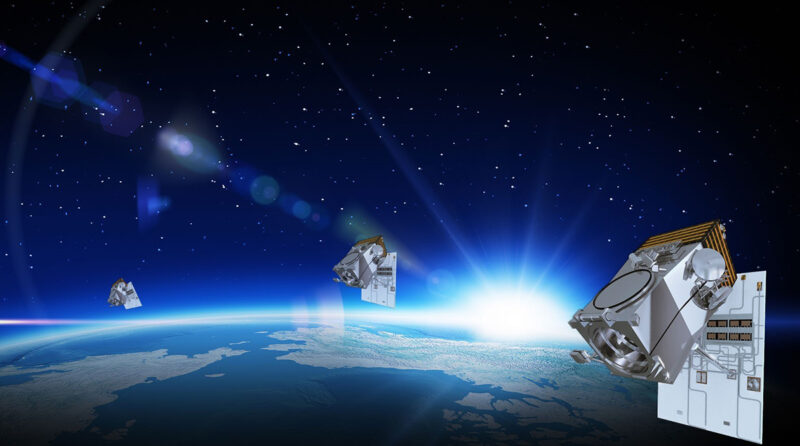Latest News

Concept image of Legion Constellation. Photo: Maxar
Maxar Technologies on Thursday revealed financial results for its Third Quarter (Q3) 2020. The company reported a strong quarter with $436 million in revenue — an increase of $23 million compared to the same period in 2019. Net income was reported at $85 million, compared to Q3 2019 with a reported net loss of $26 million. This increase in Q3 2020 was primarily driven by an increase in the Space Infrastructure segment of $19 million, which was partially offset by a decrease of $8 million in the Earth Intelligence segment — both compared to the same period last year.
Total company revenue increase by 6% year-over-year, which is the second quarter of revenue growth in a row. Maxar was hit hard in Q1 2020, when it saw an 11.6% decrease in consolidated revenue.
Adjusted EBITDA in Q3 2020 was $112 million, a slight increase compared to a adjusted EBITDA of $109 million in Q3 2019. The increase is attributed to a higher Adjusted EBITDA from the Space Infrastructure segment, partially offset by lower Adjusted EBITDA from the Earth Intelligence segment.
Maxar CFO Biggs Porter saw performance in line with the company’s expectations. “Performance in the quarter was solid, with both year-over-year revenue and profit growth on a consolidated basis and positive free cash flow,” he said. “While the existence of the COVID pandemic remains a risk to our operations and the operations of our customers, we have thus far been able to manage the crisis roughly in line with expectations.”
Maxar CEO Dan Jablonsky commented: “We generated solid year-over-year revenue growth this quarter as demand has remained resilient and our customers continue to rely on us for important national security and commercial missions. We also enjoyed significant backlog growth on a diversified set of awards with both government and commercial customers across our Earth Intelligence and Space Infrastructure segments … our results this quarter further reflect progress on our multi-year strategy to position Maxar for sustained revenue, profit and cash flow growth. We are executing well against our strategic priorities for the year while continuing to respond to the global COVID-19 pandemic by focusing on the protection of the health and safety of our team members, families, customers and communities.”
Additionally, Jablonsky expressed on a recent investor call that the first WorldView Legion satellites launch will be slightly delayed, due to the COVID-19 pandemic and fitting in the launch with SpaceX‘s launch manifest. Maxar has requested a launch window for the next available SpaceX mission after a NASA mission, starting the first week of September 2021 for the first two Legion satellites. Maxar continues to make progress on the integration assembly and test of all six spacecraft expects to go into environmental testing early next year.
He explained: “I wouldn’t really read too much into it other than then we are operating COVID environment, it’s very complex program and things are coming in, maybe just a little slower than we expected them to in that way … Last quarter we said it’d be a key to launch, we’re just shoving out a little bit past that to the first available window after the NASA launches, which is that first week in September [2021].”
Get the latest Via Satellite news!
Subscribe Now